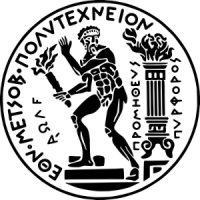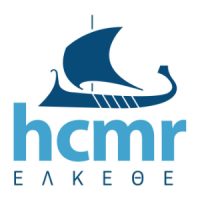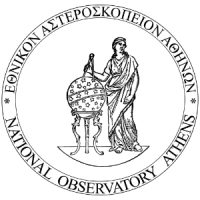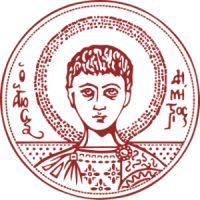
National Technical University of Athens (NTUA)
The National Technical University of Athens (NTUA) was established in 1837 and is the oldest technological institution in Greece. It has 9 Schools, over 500 faculty members, and around 200 laboratories. NTUA addresses contemporary social and technological issues by promoting advanced research and innovation. It has the ability to create links between science and education, society and industry, through decision-making processes.
The research conducted in NTUA’s laboratories ensures environmental protection and long-term sustainability. The NTUA team is interdisciplinary, with expertise in a wide range of fields such as environmental studies and standards development, ship and marine transport studies, technologies for environmental monitoring and restoration, etc. NTUA has a strong track record in European and national projects and has participated in more than 384 successful FP7/Horizon 2020 projects and numerous collaborative partnerships.
National Centre for Scientific Research ‘Demokritos’ (NCSR Demokritos)
Demokritos was founded in 1961 as the ‘Demokritos’ Nuclear Research Center. Today, it is the largest interdisciplinary Research Center in Greece with about 180 Researchers and Specialized Functional Scientists, and more than 500 research staff employed in projects funded by state funds, the European Union, International Organizations, and Industry. The Center operates five independent Institutes that focus their research on different scientific fields. It is governed by the Center’s Administrative Board and supervised by the General Secretariat for Research and Innovation, which belongs to the Ministry of Development & Investments.
According to the new organization of Demokritos, its research activity is centrally supported by the Administrative Directorate, the Directorate of Technological Applications and Research Support, and the Autonomous Departments of the Special Account for Research Grants and Electronic Governance.
Hellenic Centre for Marine Research (HCMR)
The Hellenic Centre for Marine Research (HCMR) is a governmental research organization operating under the supervision of the General Secretariat for Research and Technology (GSRT) of the Ministry of Development and Investments.
The Hellenic Centre for Marine Research aims to carry out scientific and technological research and experimental development, dissemination and application of the produced results, especially in the fields of the study and protection of the hydrosphere, its organisms, its interaction with the atmosphere, the coasts and the sea bottom, the physical, chemical, biological, and geological conditions that prevail and regulate the aforementioned systems with:
- the production of products and provision of services.
- the support of decision-making regarding the general public, the economy, and culture.
- the economic exploitation either by the HCMR and/or by its employees or by third parties.
National Observatory of Athens (NOA)
The Institute of Astronomy, Astrophysics, Space Applications & Remote Sensing (IAASARS) is one of the three research institutes of the National Observatory of Athens (NOA), the first research institution of the Greek state. The IAASARS was the evolution of the Astronomical Institute, which was established as a department of the NOA, alongside the Meteorological and Seismological departments, thus continuing the tradition of research in astronomy in Greece. Similarly, IDET was the evolution of the Ionospheric Institute.
Researchers at the Institute are active in basic and applied research in astronomy, astrophysics, space sciences, Earth observation using satellite and ground-based remote sensing methods, as well as wireless telecommunications, signal processing, and informatics as supporting tools for all the above. Additionally, we develop equipment for the 2.3 m Aristarchos telescope. The work of the Institute includes the systematic collection and processing of measurements made on the Earth’s surface and in space concerning the terrestrial and marine surfaces of the Earth, the atmosphere, ionosphere, and magnetosphere of the Earth, the interplanetary space, the magnetospheres, ionospheres, and exospheres of other planets, and the atmosphere of the Sun.
University of the Aegean (UoA)
The University of the Aegean continues the vision of Konstantinos Caratheodory. It was re-established in 1984 and is one of the newest universities in Greece. Today, thirty years later, with 18 Departments, 38 Postgraduate Study Programs, Summer Schools, and Lifelong Learning Courses, the University of the Aegean ranks among the largest universities in the country. The administrative headquarters of the University of the Aegean is in Mytilene, while its Schools and Departments also operate today in the island cities of Mytilene, Chios, Karlovasi, Rhodes, Ermoupoli, and Myrina, constituting a University Network that covers all the prefectures of the Aegean.
Basic and applied scientific research of international scope is conducted by all the Departments and the Scientific Staff of the University, which is utilized at international, national, regional, and local levels, through various publications, conferences, and projects (applied research, developmental interventions, etc.).
Aristotle University of Thessaloniki (AUoT)
The Aristotle University of Thessaloniki is the largest Greek university. The main campus is located in the city center and covers an area of about 430,000 m2, while some of its facilities, whether educational or administrative, are located outside the university campus or in other cities. In total, it includes 10 faculties, which are comprised of 40 departments and 1 single-department faculty.
The Faculties of Aristotle University of Thessaloniki are among the most active in the field of research. They participate in competitive research programs funded by either international or national bodies.
University of Piraeus (UoP)
The University of Piraeus was established as the ‘School of Industrial Studies’ in 1938 by the Association of Industrialists and Craftsmen, in cooperation with the Association of Corporations of Greece, laying the foundation for the economic, legal, and technical education of industrial executives. In June 1989, the School was renamed to the University of Piraeus. Today, the University of Piraeus has four faculties and ten departments.
The University of Piraeus has demonstrated a rich research activity, specializing in undertaking European Programs, publishing original scientific papers in international journals, participating in international conferences, etc. The University’s research work has been awarded with international honorary distinctions.
Athens University of Economics and Business (AUEB)
Since its establishment, the journey of the AUEB has been characterized by a continuous effort to keep up with the multifaceted developments of Greek and international society. The adaptability and dynamism it has shown helped it evolve from a School of Classical Economics and Business Studies into a modern and dynamic economic-technical University. It is not limited to the development of Classical Economic and Administrative Sciences, but also extends to modern sciences of Decision Making and Informatics, with a particular emphasis on the integration of quantitative methods and new technologies. Today, AUEB is one of the leading universities in Europe and is also ranked among the best universities worldwide.
The ReSEES Research Laboratory conducts interdisciplinary research on environmental issues, natural resources, and energy. The primary goal of the team’s theoretical and empirical research is to understand, support, and implement Sustainable Development. The research tools used by ReSEES include, among others, financial, socio-economic and econometric analysis, environmental valuation, integrated environmental-economic modeling, life cycle analysis, etc.
Academy of Athens (AoA)
The general and primary purpose of the Academy of Athens is the cultivation and promotion of Sciences, Letters, and Fine Arts, and the communication of the institution and its academics with other academies or their peers, as well as the exchange of views with them. The purposes of the Academy also include scientific research and study in the fields of agriculture, industry, shipping, national economy, as well as the issuance of opinions, proposals, decisions, judgments for the enlightenment and guidance of state organs and authorities. The Academy of Athens participates with the Center for Atmospheric Physics and Climatology Research.
The purposes of the Center for Research of Atmospheric Physics and Climatology are: the research of climatic fluctuations of any time period, the systematic study of observations referred to in the upper layers of the atmosphere, the collection and processing of observations related to atmospheric pollution.








